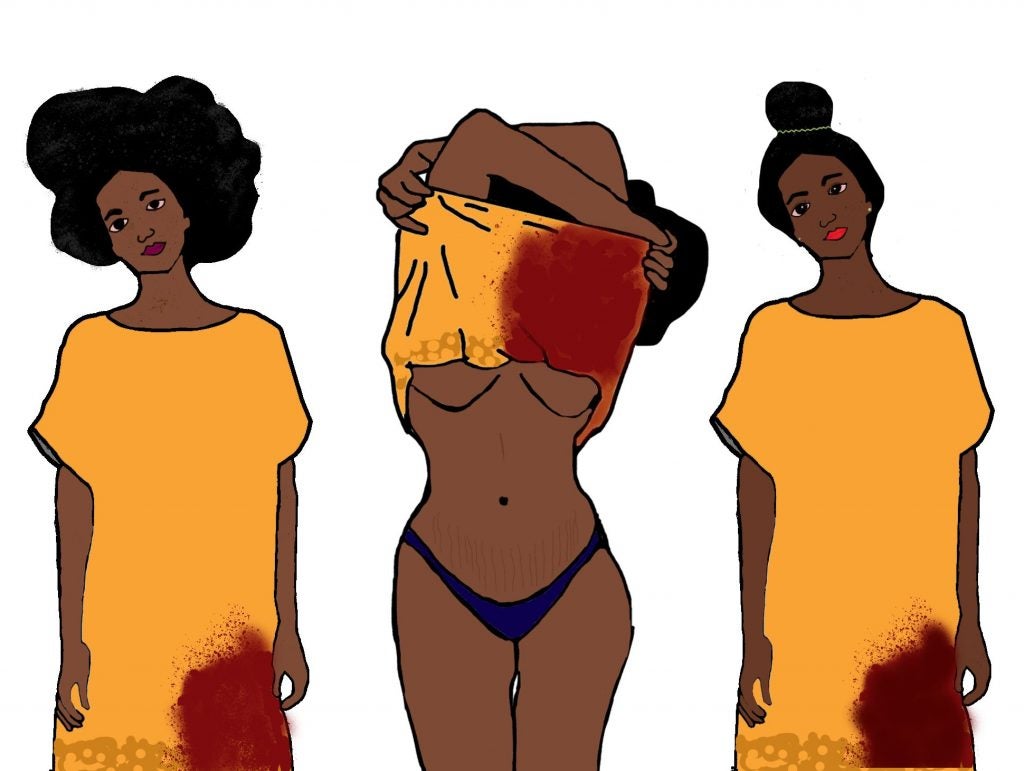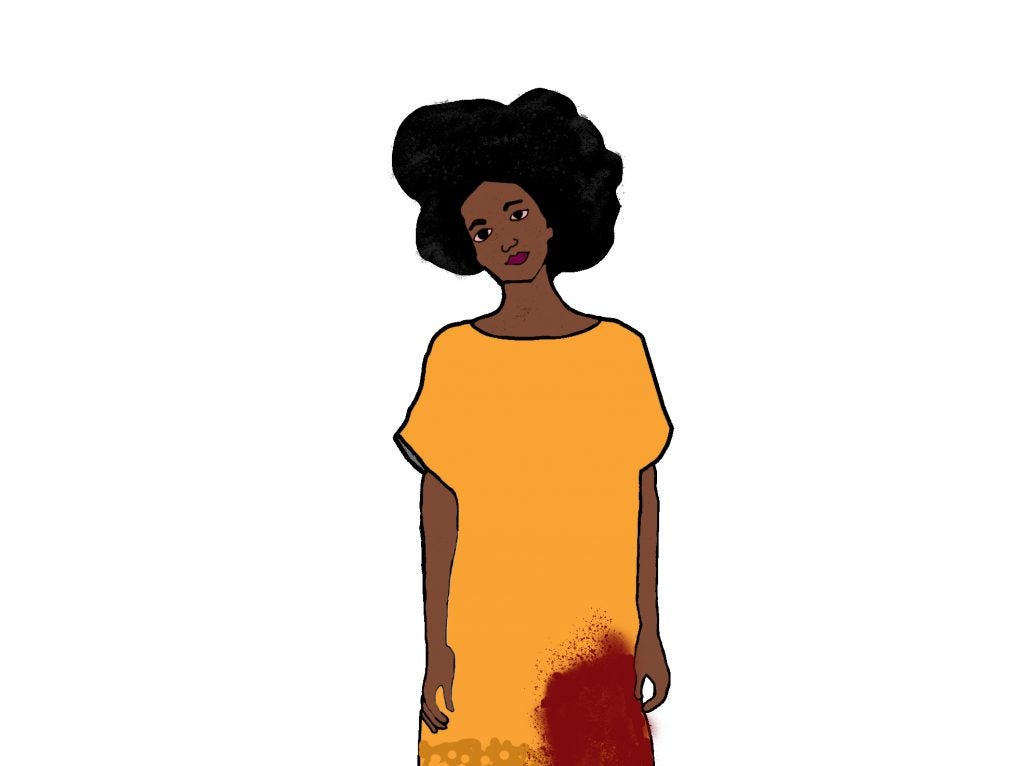
Hand me down
It is not only Mamaa’s genes that have punctuated their geography on Ayebea’s face. It’s her personality too. Saturday evening, and they’re glued to the TV watching The Voice. Jaden, Aunty Gifty’s son, has his audition airing tonight, and they don’t want to miss it. A lanky white girl with a voice that can swallow her whole has the judges hitting their buttons. Soon, it is Jaden’s turn. He walks onto the stage, and with a mic and a nervous smile, starts to sing.
When his falsetto voice spills out, Mamaa squeals, and so does Ayebea.
He stretches a note; Mamaa and Ayebea simultaneously slap their thighs, except Mamaa is comfortable with her left, and Ayebea favours her right.
When he holds a chord for a good fifty-six seconds, Mamaa moans loudly as if she were drinking her own mother’s soup.
Between moans, Ayebea interjects with soft slaps to her right thigh, gently snapping with her other hand. Soon, they’re both doing all three: moaning, snapping fingers, and slapping one thigh. But at different times, creating a synchronized cadence.
The pair have the glossy look of mothers & daughters you watch in telenovelas, dreaming of another you in an alternate universe. They could pass for fresh cushiony butter bread, but someone has definitely mixed that dough with cadmium, for it has claws.

Mamaa had Ayebea when she was twenty-six, exactly nine months after Emmanuel had married her. The baby wasn’t Emmanuel’s. There was no reason for Emmanuel to doubt that the baby wasn’t his. Ayebea may have looked just like her mother, but she had his brains, or so he chose to believe. It was Emmanuel’s cousin Joe, who had traveled from Berlin for the wedding and stayed three weeks before returning, who was the father.
Mamaa knew this.
Ayebea knew this too. When she was thirteen, she broke into tears and refused to eat for two days because the boy from next door, after rubbing his genitals in between her thighs the entire weekend, now refused to talk to her. Mamaa, having no use for tears unless for future pleasure, scolded her—not for the deed, but for being a crybaby. Dragging Ayebea to her bedroom, Mamaa stripped bare to skin in front of Ayebea, lifted her ivory breasts to the ceiling as if in sacrifice, grabbed flesh from backside to inner thighs to calves, and swore: “This body is a god. And gods are fiery, indulgent, self-seeking beings who men have never and will never have control over. So, act like it.”
This was the day Ayebea learnt that her father wasn’t her father. Mamaa said it nonchalantly, with triumph.
She still called Emmanuel “father,” but the way you talk with food in your mouth—content in your gluttony.
Weeks after, Ayebea would have a recurring nightmare for several months. A dream in which two sets of well-chiseled hands delicately sawed open her lady parts, and then sewed them back together with stainless steel needles and black thread, only to rip everything apart all over again. She would wake up—a wordless scream strangling her, a thirst hankering at her neck and belly. She told her mother that it wasn’t the brutishness of the sawing, or the inelegance of the bastard hands’ poor sewing skills, or even the mercilessness of ripping through defeated skin.
It was the sheer disbelief at her body’s inability to stage a protest, shock at the flesh’s ability to feel all thousand pins of pain, even in dreamland, especially in dreamland. Mamaa molded her daughter’s soft body to her bosom; how she wished she could hold her longer than an unbothered flu. Something sharp and wretched stung Mamaa’s chest, and she wanted to wring it out. Instead, she offered Ayebea a promise: the flesh may know nothing, but it knew enough to learn well. From then, Ayebea would wake up after every nightmare to a flask of warm ginger water to chase the bad away and go right back to sleep.
If mother and daughter loved you, they loved you wide: a bomb blast, confetti at rich people’s parties, five million copies of a bestseller, starlings in a murmuration, all of Agbogbloshie’s electronic waste.
The entire purity and filth of the earth was their loving you.
They spoke to both young and old softly but gave every word the substance of an insult:
“God is a cheerful fellow, Kwakye, but around you, he doesn’t even smile.”
“If I had to mate with Jack to save humanity, our species would die out.”
“Maame Krabea, why do you bother with greetings every morning when we both know you do not like me? Even the flies of Tse-Addo would rather starve than bite into your skin and be infected with bitterness.”
It was mesmerizing to watch them unfold, not a plotted wickedness. Not calculated mischief, but free flowing, innate—dark thoughts burrowed deep within them. What I’m saying is they were effortlessly fucking cruel.
Perhaps trauma is a leaking faucet that trickles from a twenty-six-year-old raped by her husband’s own blood the night after her wedding, or perhaps trauma boils up a storm until a woman’s body becomes confluence for all things savage. Or perhaps there are things neither science nor fiction has articulated: how the gene of perpetual ruthlessness is handed down from bruised mother, to the product of her pain.
Ama Asantewa Diaka is a Ghanaian storyteller, constantly renewing her faith in God and people.



